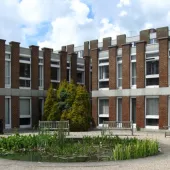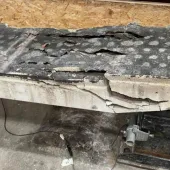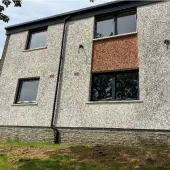MPs demand action on RAAC in schools
The latest Public Accounts Committee (PAC) report has slammed the Department for Education (DfE) for a lack of basic information on reinforced autoclaved aerated concrete (RAAC) across the UK school estate.
This lack of basic information from the DfE on the concrete crisis in schools is both “shocking and disappointing”, said the report, which warned that the school estate has deteriorated to the point where 700,000 pupils are learning in a school “that needs major rebuilding or refurbishment”, as well as “impacting their learning experiences and ultimately limiting their educational achievements.”
MPs also said unacceptable numbers of pupils are learning in poorly maintained or potentially unsafe buildings.
The Government’s School Rebuilding Programme (SRP), which is behind its initial schedule for getting schools built, has considered upgrades to 1,200 schools with safety issues or in poor condition.
Five hundred schools in total will be selected to be included in the SRP, but many of the 100 schools still to be selected will be chosen due to serious RAAC issues. Many other schools will therefore not get on to the SRP, even though longer-term assessments of their poor condition would lead to a conclusion that they should be rebuilt.
The PAC is extremely concerned that DfE does not have a good enough understanding of the risks in school buildings to keep children and staff safe. Despite the PAC raising these as concerns for several years, DfE was unable to tell the PAC’s inquiry how many surveys to identify RAAC were outstanding, how many temporary classrooms had been provided to schools affected by RAAC, or say when RAAC issues would be addressed.
There is also a lack of certainty on support for schools affected by RAAC, and questions around both the reliability of the DfE’s information on the number and condition and schools affected, and the Government’s attitude to risk with regards to the school estate, said the report.
The PAC is calling on the DfE to work up a full picture of asbestos across the school estate. The report finds that, as at July 2023, the DfE was unsighted on asbestos in just over 4% of schools. While this has fallen from 7% at May 2022, this still represents almost 1,000 schools.
Both RAAC and asbestos can be present in the same building, complicating any works to tackle the issues. Since 2011, around 11 teachers or ex-teachers have died from asbestos-related conditions each year, Health and Safety Executive data suggests.
The report urges the Government to develop a package of support and good practice, targeted at helping mitigate the negative impact on pupils and teachers of schools that are in poor condition but cannot yet be fixed.
Dame Meg Hillier MP, Chair of the Committee, said: “A significant proportion of children in this country are learning in dilapidated or unsafe buildings. This is clearly beyond unacceptable, but overcoming the consequences of this deficit of long-term infrastructure planning will not be easy. The School Rebuilding Programme was already struggling to stay on track, and DfE lacked a mechanism to direct funding to regions which need it most. It risks being blown further off course by concerns over RAAC, and many schools in dire need of help will not receive it as a result.
“The images of classroom ceilings collapsed onto empty school desks released in recent months are not just searing indictments of a deteriorating school estate. They are chilling reminders of absolute catastrophe averted through sheer luck. Given the poor condition of so many of these buildings, the Government’s prime challenge now is to keep the safety of children and staff absolutely paramount."







